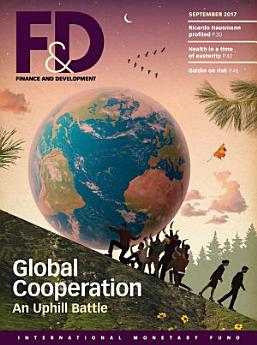Finance and Development, September 2017
International Monetary Fund. External Relations Dept.
Set 2017 · International Monetary Fund
E-book
64
Mga Page
reportHindi na-verify ang mga rating at review Matuto Pa
Tungkol sa ebook na ito
This paper focuses on the United States and the United Kingdom that were the main architects of the post-1945 order, with the creation of the United Nations systems, but they now appear to be pioneers in the reverse direction—steering an erratic, inconsistent, and domestically controversial course away from multilateralism. Other countries, meanwhile, for various reasons are incapable of assuming that global leadership and the rest of the world likely would not support a new hegemon in any event. The postwar system created at the BrettonWoods, New Hampshire, conference in 1944 should be credited with economic growth, a reduction in poverty, and the absence of destructive trade wars. It built a comity that encourages to this day cooperation on issues as diverse as taxation, financial regulation, climate change policy, and terrorism financing. The central postwar concern was international financial stability. The United States and the newly created International Monetary Fund were at the center of a system that sought to maintain that stability by linking exchange rates to the dollar, with the IMF the arbiter of any changes.
I-rate ang e-book na ito
Ipalaam sa amin ang iyong opinyon.
Impormasyon sa pagbabasa
Mga smartphone at tablet
I-install ang Google Play Books app para sa Android at iPad/iPhone. Awtomatiko itong nagsi-sync sa account mo at nagbibigay-daan sa iyong magbasa online o offline nasaan ka man.
Mga laptop at computer
Maaari kang makinig sa mga audiobook na binili sa Google Play gamit ang web browser ng iyong computer.
Mga eReader at iba pang mga device
Para magbasa tungkol sa mga e-ink device gaya ng mga Kobo eReader, kakailanganin mong mag-download ng file at ilipat ito sa iyong device. Sundin ang mga detalyadong tagubilin sa Help Center para mailipat ang mga file sa mga sinusuportahang eReader.








